Land Hey(Sisters duo|“The Power of Sign Language” delivered by sisters)
2025.10.09
Representative of IGENGO Lab.

2024.08.22
IGENGO Lab. is a group with a mission to “create a world where we can enjoy different things”, which develops and provides “Inter-lingual Escape Game”, incorporating various “IGENGO (different language)” into the mystery solving game.
Fumi Kikunaga is the representative of IGENGO Lab.
On the day of the interview, a certain day in June, it had been raining heavily in Tokyo since the morning.
However, Kikunaga who appeared at the meeting place with a bright umbrella in her hand, had a cheerful atmosphere that drowned out any feelings of “unfortunate weather”.
As a deaf person herself, what is the future that she envisions where a society transcends language barriers.
目次
―What kind of game is the “Inter-lingual Escape Game” that you and your team are creating?
Kikunaga “Inter-lingual Escape Game” uses sign language and gestures into the mystery solving game. It is a new “experience type entertainment” where hearing people who uses spoken language such as Japanese and deaf people who uses visual languages such as sign language form a team and participate in the game together and help each other to solve many mysteries. How can we convey our feelings to someone who speaks a different language? The desire to “understand sign language” and “want to convey my intentions” is combined with the desire to “solve a mystery” and a link is created where “I want to find the answer” = “I want to know and communicate with the other person” and they work hard to communicate their intentions. Therefore, when a mystery is solved, it is not just the fun and happiness of clearing the mystery, but also connects to “the joy of being able to communicate”. We are confident that this style cannot be imitated by anyone, and is an unique content to IGENGO Lab.
―There are currently 17 games, and a total of 35,000 people have participated, including regular mystery solving games. What is the content of the game?
Kikunaga For example, one of my works, “Ushinawareta Kokoro Sagashi (Searching for lost hearts)” is set on an island in the south, and the setting is that people speak in Japanese Sign Language and a new visual language created to suit the world of the story. A story in which a disease of unknown cause that causes “loss of memory, feelings, and emotions” is rampant on the island and a researcher (participant) who studies the mind and memory travels there and uses a device that allows to touch the depths of the mind to regain one’s mind and memories and grasp the truth about the island… A deaf person takes on the role of a tour guide who guides the island, and one deaf person and four researchers (participants) work together to progress through the game while solving mysteries. In this way, each work has its own stage and setting.
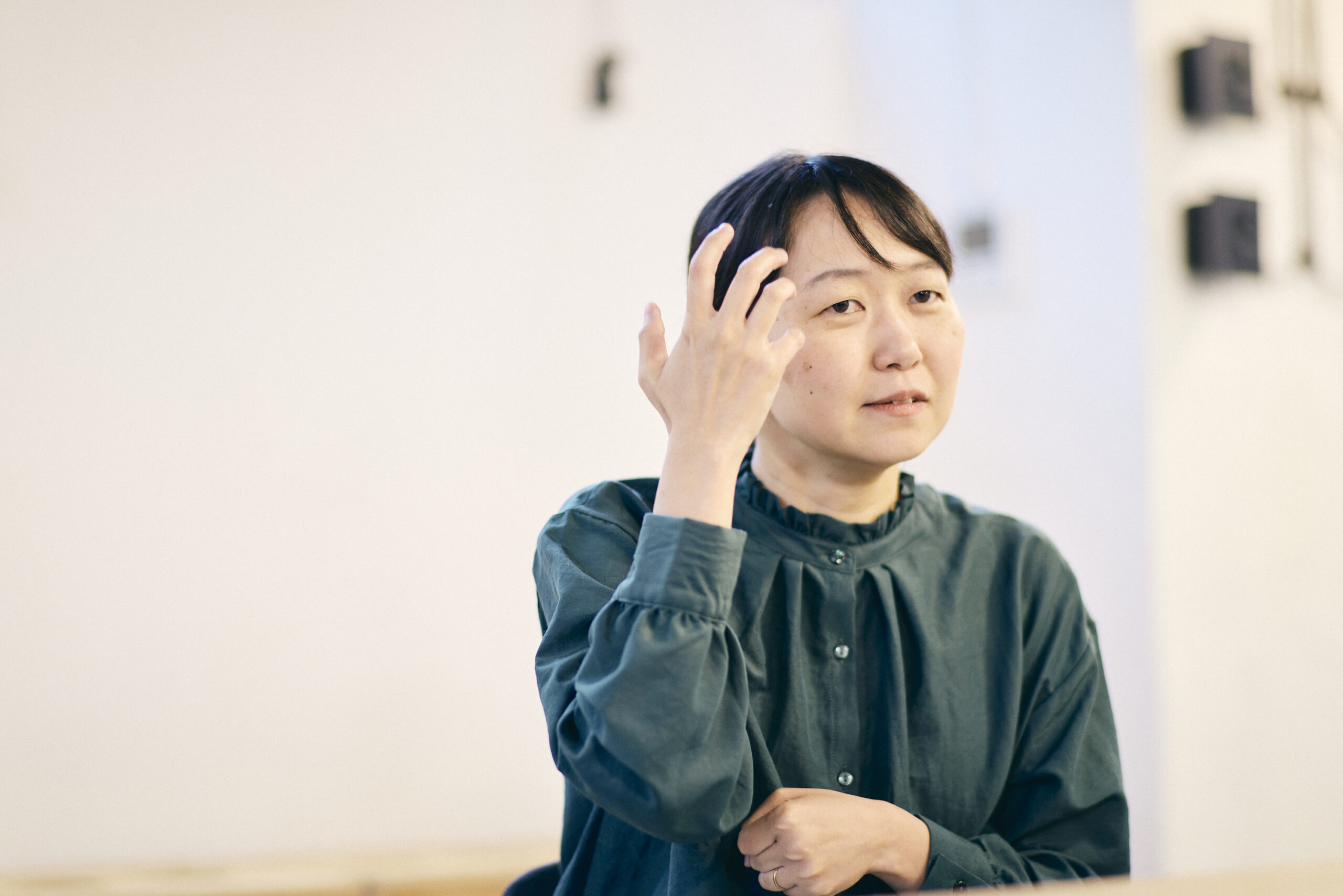

―Since the participants are in an environment with a different language, they naturally feel stronger than usual to communicate their intentions in order to solve the mystery.
Kikunaga That’s right. They really focus on analyzing it and trying to deepen communication as they want to solve the mystery. What’s interesting is that through this experience, you can experience feelings such as happiness and enjoyment when communicating with people who speak a different language.
―I also find it interesting that deaf and hearing people work together in the game. How did this come about?
Kikunaga In my everyday life, I often feel that it is difficult for deaf people and hearing people to mix together… Even if they both work together and work hard to learn sign language and are able to communicate, the deaf and hearing people may be separated at lunchtime, etc. I had often seen such situations, so I was wondering if it would be possible to mingle with each other while acknowledging the differences in culture and the important ways of thinking, when a hearing friend of mine invited me to participate in a mystery solving game. It was so much fun!! When I told the director of the welfare-type facility for children with disabilities where I was working at the time about my experience, the director suggested to make my own riddle. At that facility, they were having hearing people learn sign language and interacting with them, so, I showed off my riddle at the social gathering. That is how the “Inter-lingual Escape Game” started. So it started out as a hobby, and I would make it after work or on my days off.
―How did a game that started at a social gathering at a facility become the business it is today?
Kikunaga It was in 2015 that we showed off a “Inter-lingual Escape Game” at a social gathering. From there, we gradually started receiving requests to do “Inter-lingual Escape Game” not only at social gatherings but also at other events. Around that time, I met Eri Makihara, who is currently the director of the IGENGO Lab. Looking back now, meeting her was a big moment for me. She was involved in movie promotion at the time, so she gave me a lot of advice from a perspective I didn’t have. I thought I should just do it as a hobby, but she suggested that I should release it to society. So we talked about doing it together around 2017, and I was accepted when I applied to “100BANCH”, a project sponsored by Panasonic that will create the future 100 years from now in 2018. And now we’re here, and we’ve really come this far.
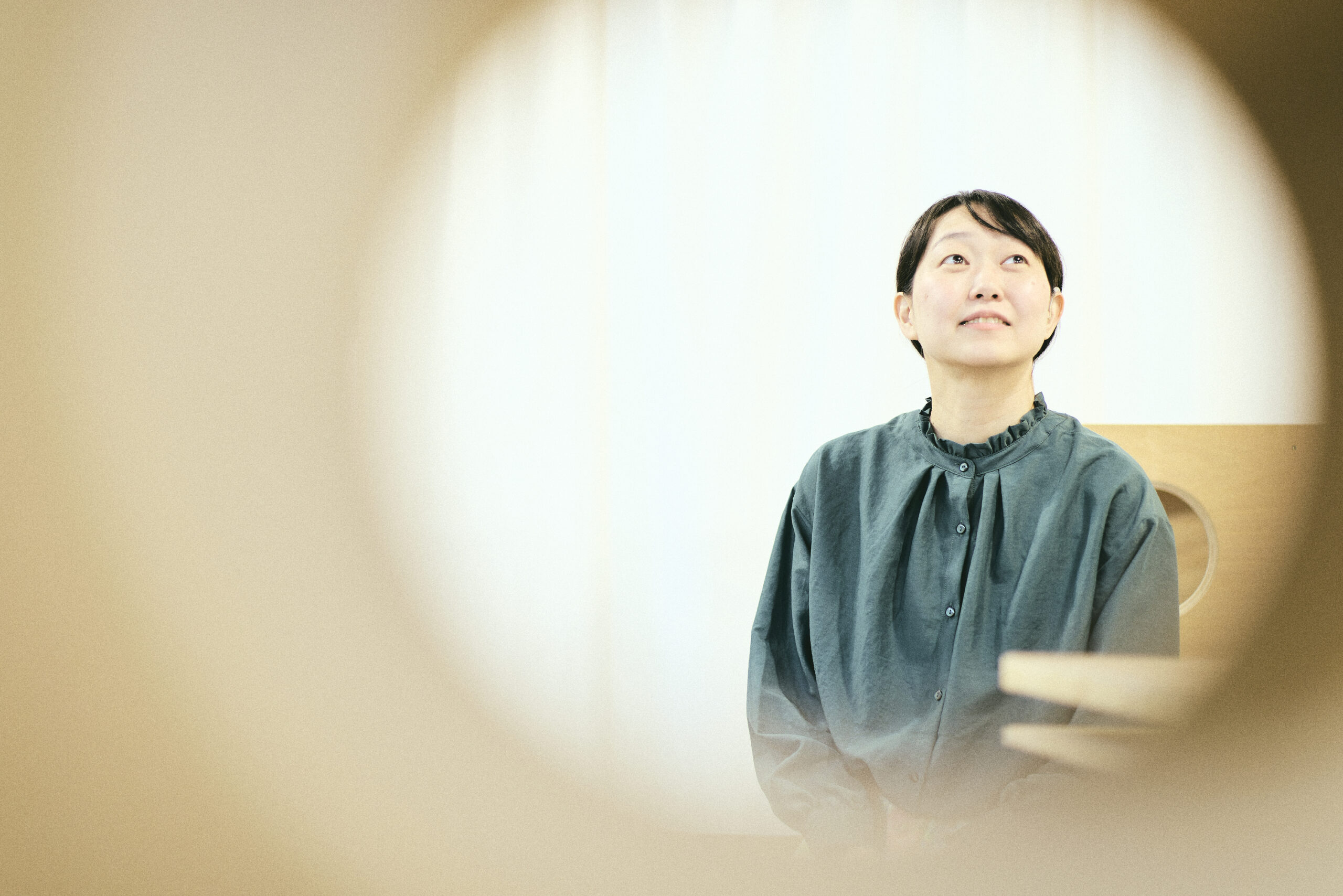
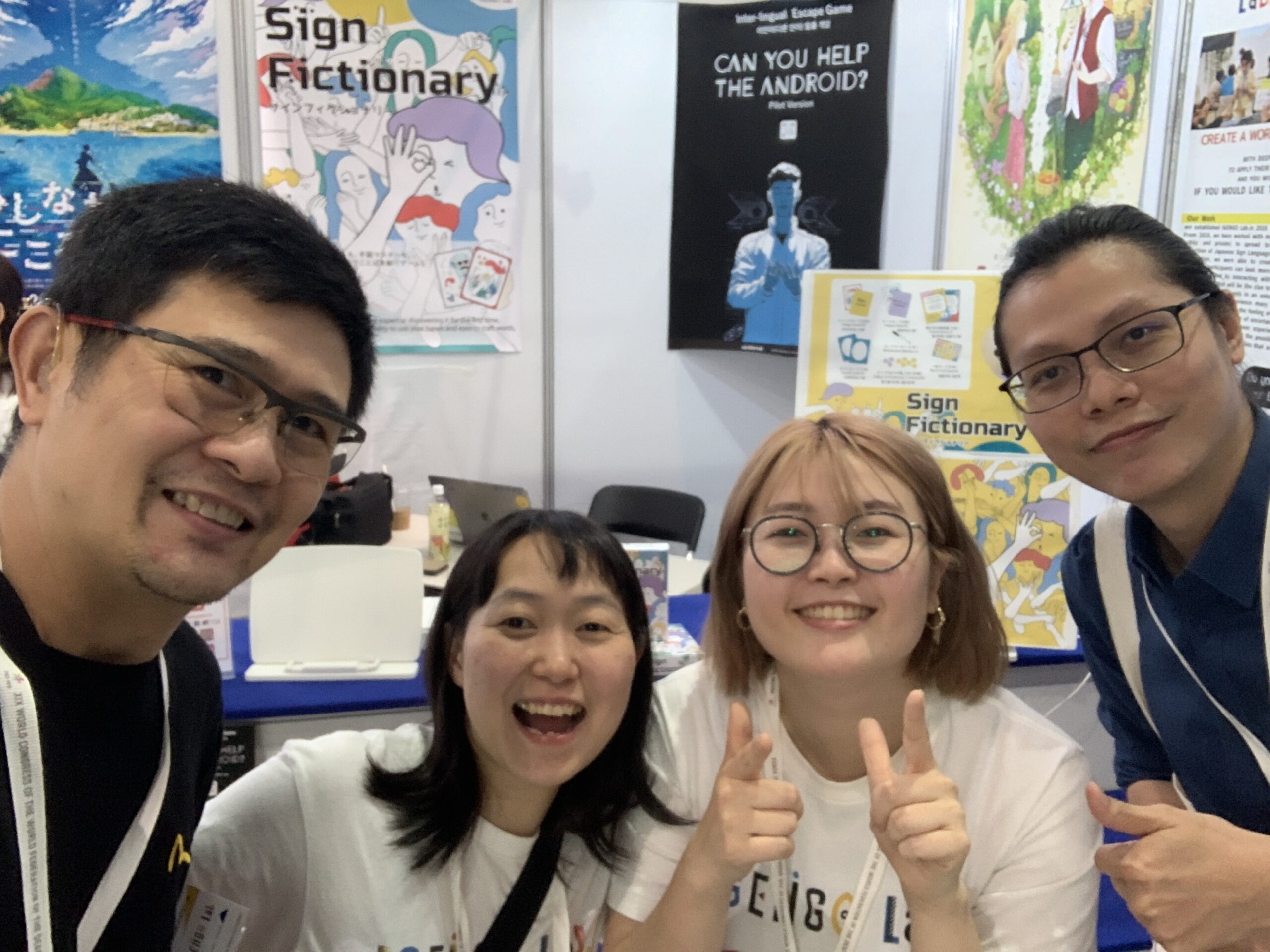
―The settings for the “Inter-lingual Escape Game” are all very unique, but how do you come up with the ideas for creating them?
Kikunaga It defers from time to time. Basically, I create a worldview based on a story that I think “would be fun if things were like this”. But I sometimes create by having repeated conversations with staff and bringing ideas to the table.
―Where do you find hints for stories that “you think would be fun”?
Kikunaga That also defers from time to time. For example, the event “Moonlit Night Fantasy Museum” was held from June to November 2022 at the Sapporo Art Park Open-Air Museum in Hokkaido. There were 74 sculptures on display at the museum, and as I was looking at them, I started having daydreams or delusions like, “It would be interesting and exciting if the sculptures started moving” or “Maybe the sculptures could move during the night”. A story is born based on that delusion. We will expand our imagination to express this world view through games such as I wonder what will happen that will move me or it will be fun if something like this happens!
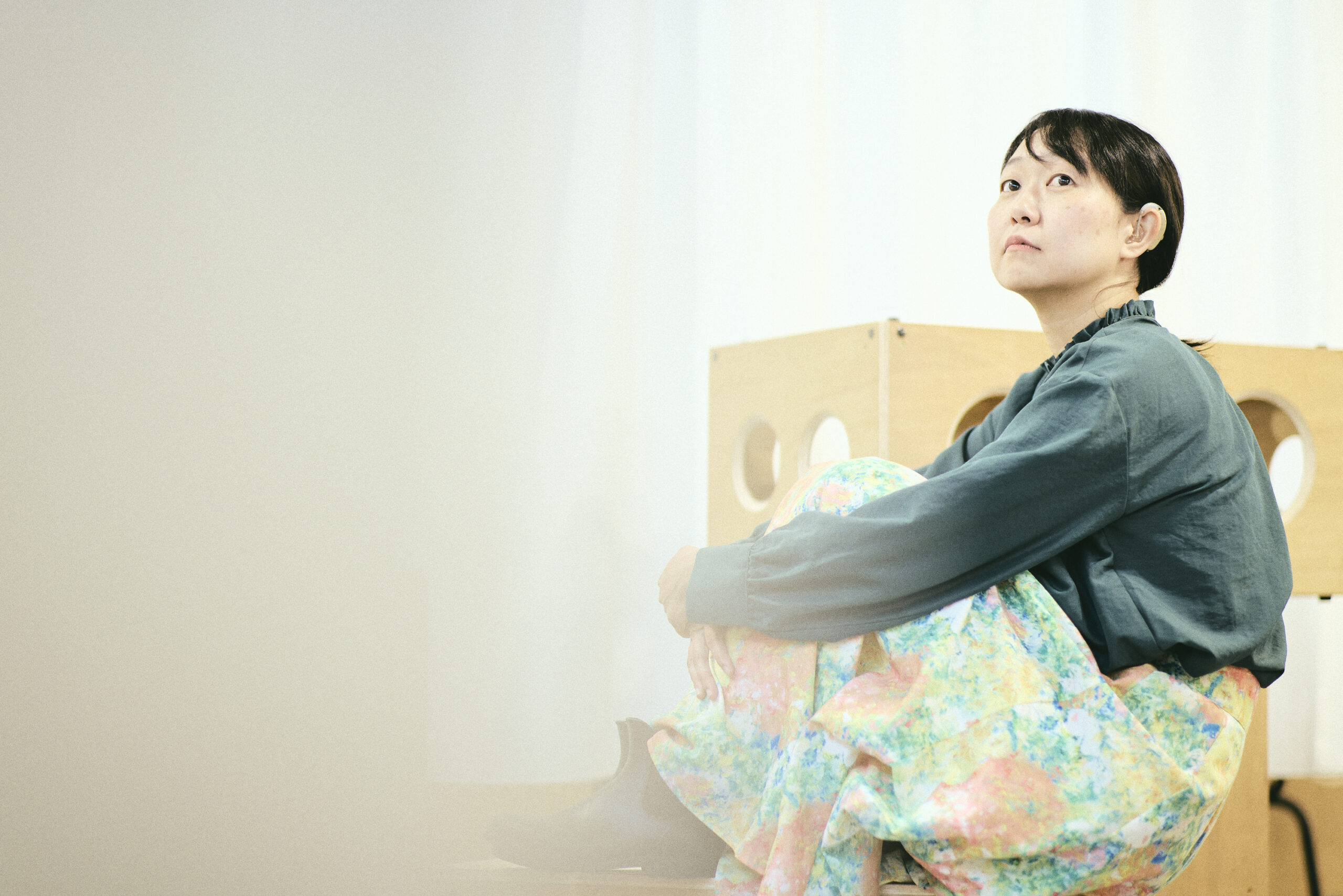
―What do you find fun and enjoying while creating?
Kikunaga I often get stuck by thinking “I can’t think of anything else while creating!”, but there are times when I suddenly see a light. That’s the most fun part. Although, I don’t know when I can see the light, so until then, the days will continue to be so painful that I feel like I’ll die. The story unfolded rapidly due to the light, and just when I thought I had stumbled again, I had another flash of inspiration! That’s what’s so fun about it. Also, it is the best time to get excited like this when I came up with a good idea while discussing it with the staff, and I thought it was great!
―What kind of impressions have you received from people who have actually played the game?
Kikunaga If you look at social media platforms such as X, thankfully there are many positive reviews. Positive reviews such as “You can surprisingly communicate by combining sign language and mystery solving” or “I was really impressed after participating. It was a real mystery solving game”. Also other reviews such as “I thought it would be light because it involved sign language and mystery solving, but it turned out to be deep and difficult” or “I enjoyed being able to immerse myself in the story” etc. We’ve also heard that the way you solve mysteries through dialogue with the person in front of you is similar to immersive theater.
―What do you want people to feel through the “Inter-lingual Escape Game”?
Kikunaga Simply just to make them think it is interesting. That is the only option. I believe that the story, the mystery solving, the deaf guides who connect them together, their expressions, the participants’ ability to draw out expressions, and each other’s communication skills are all what make this entertainment possible. We want to create content that society will appreciate as interesting content, rather than “something we should do for deaf people”. It is very important to receive fair evaluations rather than support. On the other hand, it is very important for us to provide attractive works that can be fairly evaluated.

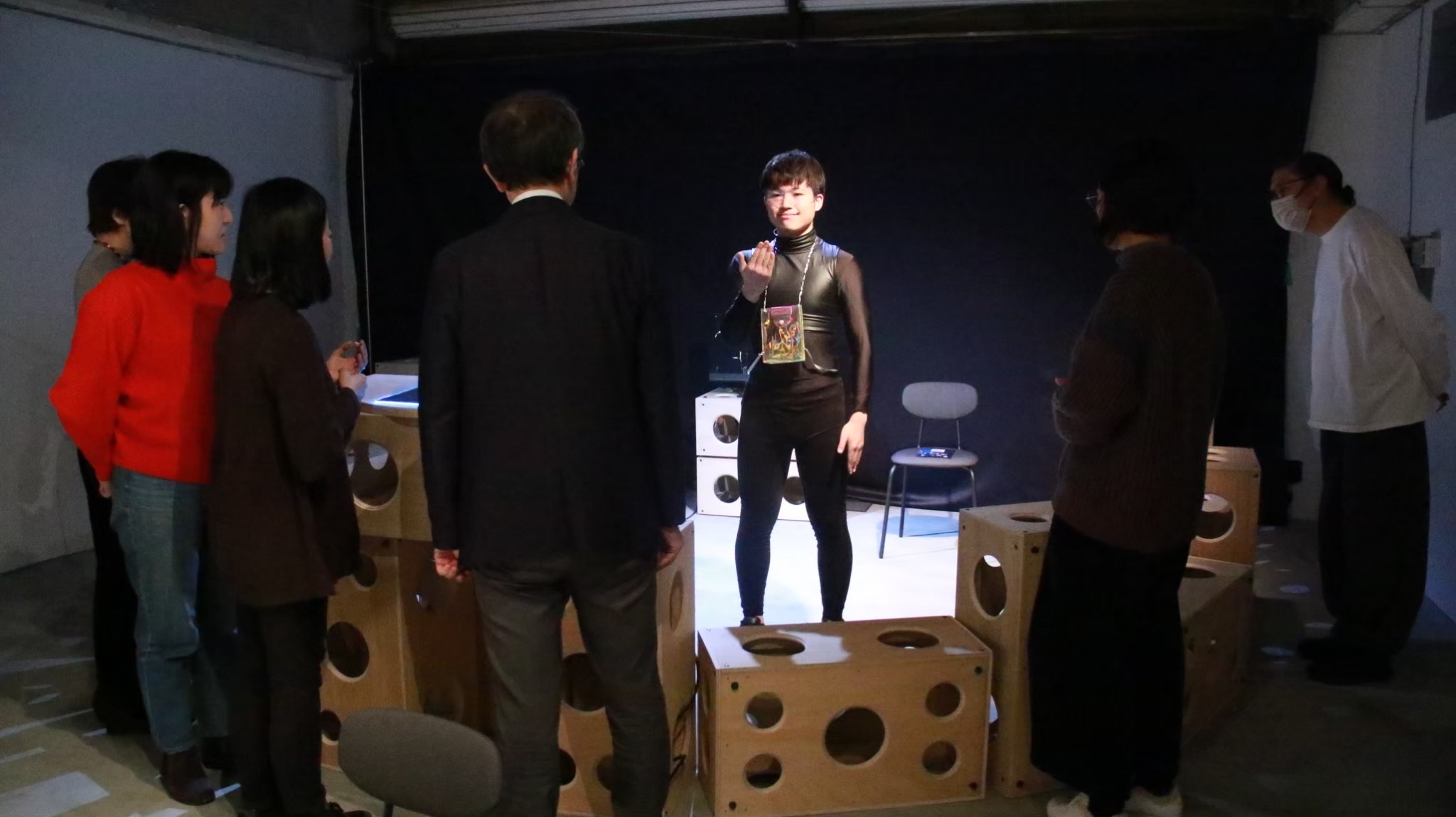
―What made you interested in the world of entertainment?
Kikunaga Looking back, I think it was the summer camp at the language training school I attended from the age of 1 to 5. We decided to do Suikawari (splitting a watermelon with a stick while blindfolded), and we all carried watermelons to a nearby river to cool them down. While we were playing while waiting for it to cool down, all of our mothers suddenly started doing their own “watermelon dance”. The children happily gathered around the mothers, and everyone danced and had fun. When we were about to take the watermelon out of the river, the watermelon was gone! We didn’t know who had taken it, so we had no choice but to go back to the training camp where we found some adults who were engrossed in eating watermelon. You would think what is this? When the teachers shouted to punish the bad guys, they ran away, so all the children ate the leftover watermelon. I later found out that this was planned by parents as an immersive theater show, and that the bad guys eating the watermelon were actually our fathers. One time, a teacher suddenly collapsed, and if we searched for the water of the Holy Spirit and brought it back to drink, the teacher would come back to life… These projects happened several times during the training camp, and I found myself immersing myself in the world of the story and having fun. Perhaps that experience has led to what we have now, and is the starting point for creating an “Inter-lingual Escape Game”.
―You mentioned earlier that you expand your fantasies and delusions to create the worldview of your stories, but have you been daydreaming a lot since you were a child?
Kikunaga When I was a child, I had no fantasies or delusions at all, and I had a strong feeling that I had to do or should do something. There was a point where I didn’t read manga or watch movies, I just focused on what was in front of me. When I first started making “Inter-lingual Escape Games”, I participated in various mystery solving games just for my information, and I realized that there were so many people with great ideas. I once immersed myself in the world of a certain game, and that feeling of elation stayed with me for a long time. I also began to feel strongly that I wanted to create that kind of “immersive” content. That’s when I started daydreaming and fantasize.
―I was surprised that when you were a child, you had a strong idea that you “should” do something.
Kikunaga As I’ve been involved in the “Inter-lingual Escape Game”, I feel like I’ve gradually been able to break free from the “should” mindset of “I should do something”. Before I started making games, I feel sorry when I think about it now, but I used to say harsh things all the time, and I had a bit of pride. In fact, I was often told that I was tough. When creating a work together, rather than saying “this is how it should be done” or “this is how it should be”, we first try it out. If it doesn’t work, we discuss what went wrong. It’s definitely better to correct it and brush up on it. We discover a lot when we share opinions, and it’s fun to do that kind of work. Thanks to building up such experiences, I was gradually freed from the “should” mindset and now have a trial-and-error mindset. This is all thanks to the members of the IGENGO Lab., so their presence is very important to me.

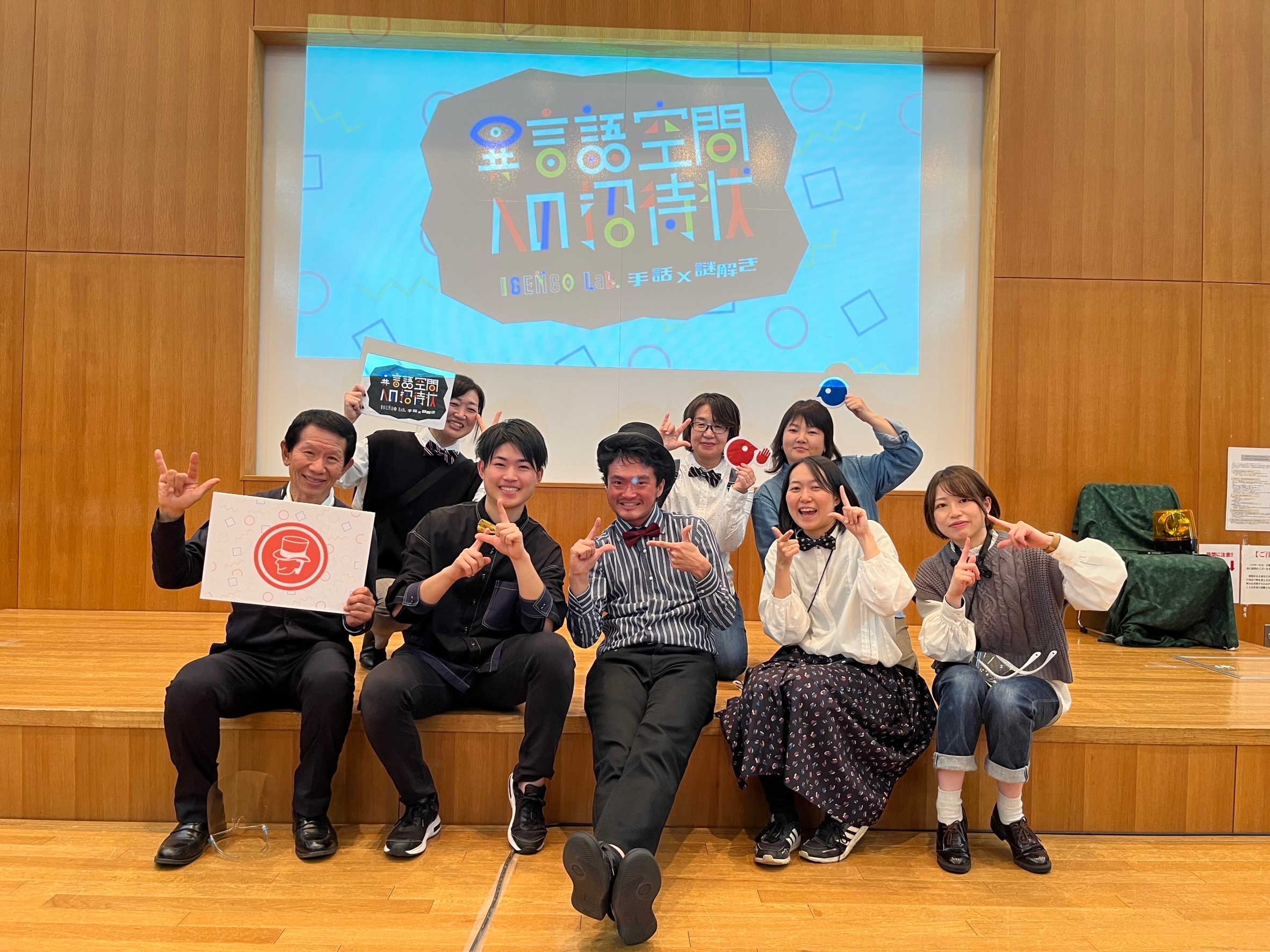
―While you were serving as a representative of the IGENGO Lab., you have joined “HERALBONY Co., Ltd.”, an art agency which creates new culture with writers with intellectual disabilities. What kind of thoughts do you have there?
Kikunaga There are two major reasons why I decided to join the company. “Show off exceptionalities” is the mission of HERALBONY, but I was told that they would like to set up a welfare team and create a place where people with disabilities can play an essential role. After hearing that story, I felt like I wanted to work with them. “A variety of people gain experience on their own and cultivate their own fields” is a very core part of my life regardless of disabilities. What I have learned through the establishment of IGENGO Lab. is that we are confident that if deaf and hard of hearing people cultivate their lives through trial and error on their own, their self-confidence will increase and society will actually change. IGENGO Lab. is also a business, but HERALBONY is even more successful as an actual business. One of the reasons was that I thought HERALBONY had the power to change society in a bigger way and the potential to change the world.
―What is the other reason?
Kikunaga I want to create values and culture that will change the existing concept of “disability welfare”. Attached to this is the IGENGO Lab., which will work together to create new value and culture through the two wheels of HERALBONY, which changes society, and the IGENGO Lab. This is because I want to walk down that path and create that future.
―What kind of activities is HERALBONY currently involved in?
Kikunaga I am mainly in charge of work related to content creation and promotion of employment of people with disabilities. One of the contents is the “Diver Session Program”, an experiential program that cultivates a mindset toward diversity for companies and sales has finally began. We receive requests from companies for training support, lectures and training related to their programs, and we respond by actually visiting the companies.
Employment of people with disabilities will become increasingly important from now on. How should we promote employment of people with disabilities? How should we operate as a capitalist economy rather than a welfare one? Taking art as an example, works of art created by people with disabilities are sold for a fair price. In the same way, how can we get fair compensation in other businesses? I am also thinking now what should we do to get the economy going in a real sense rather than just support? This is a big challenge for me but also something fun. Promotion of employment of people with disabilities is an initiative which IGENGO Lab and HERALBONY look forward to together. Although our approaches are different, our goals are the same.
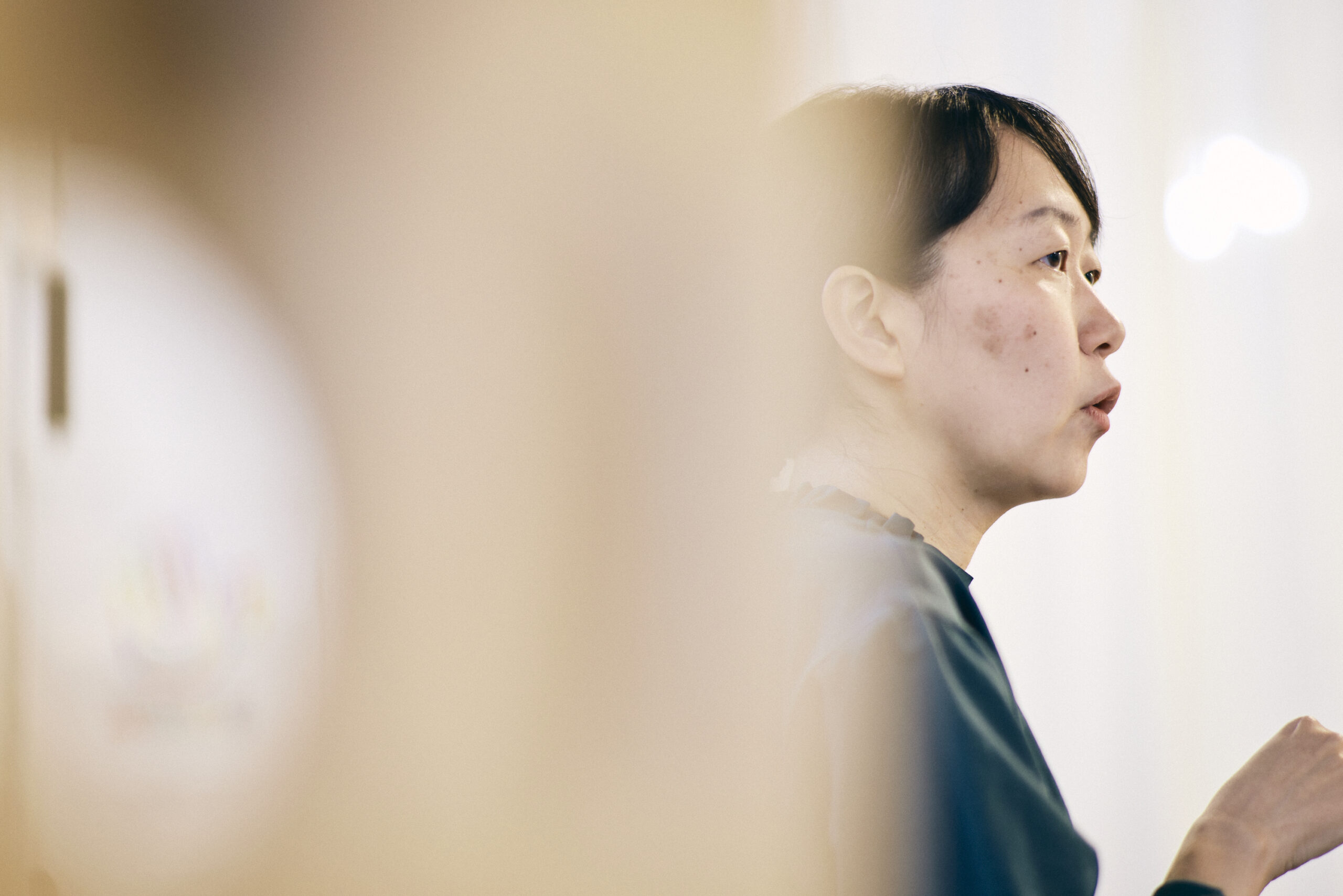
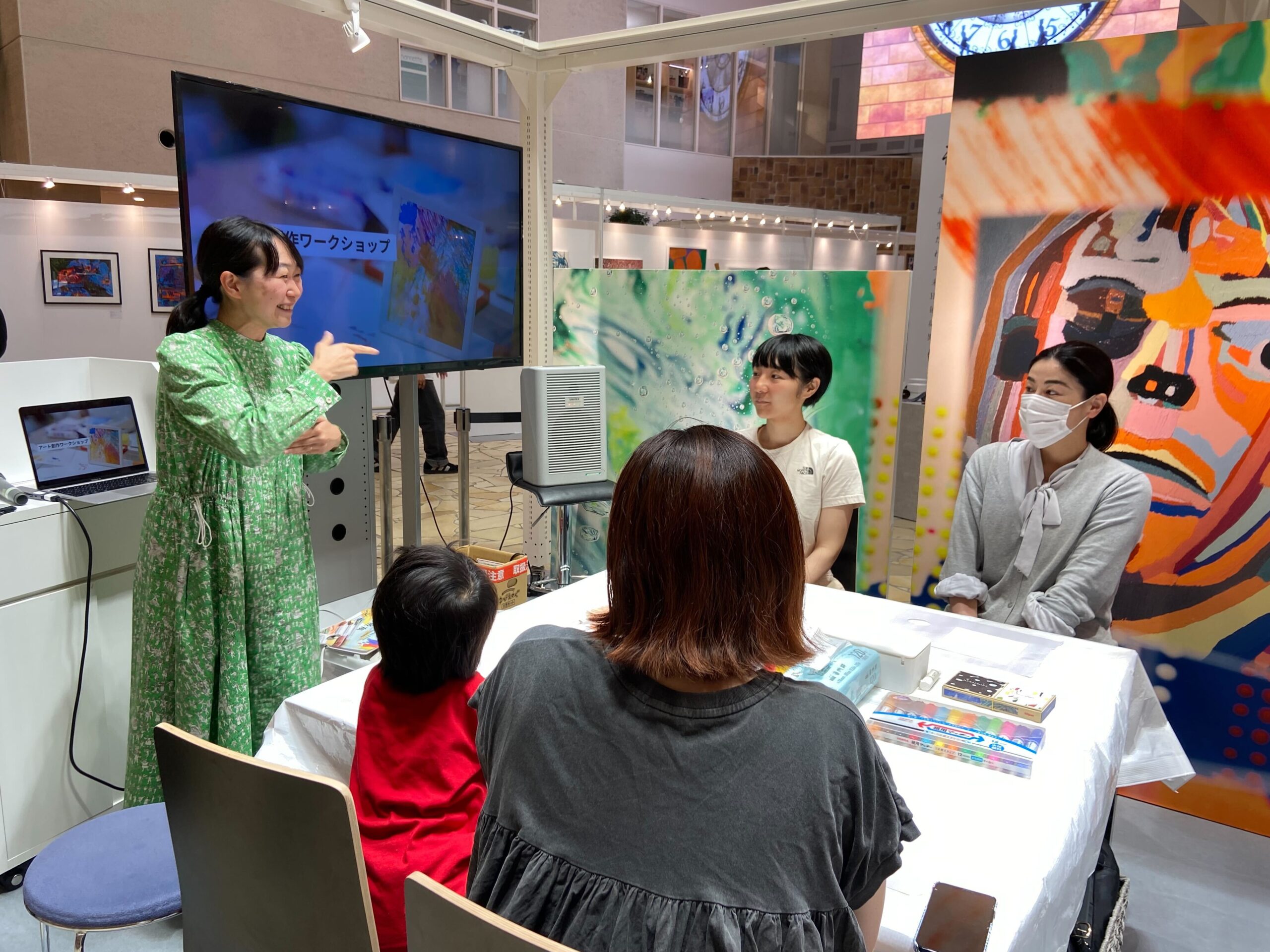
―What kind of activities would you like to do in the future at IGENGO Lab.?
Kikunaga I want to spread the “Inter-lingual Escape Game” not only in Japan but also overseas. It would be great to open a branch overseas and become a new entertainment hub for deaf people! To show the world that there is entertainment called “Inter-lingual Escape Game”, I will go to France in July and hold a performance of the Inter-lingual Escape Game “CAN YOU HELP THE ANDROID?” for 4 days. Japan has been providing “Inter-lingual Escape Game”, but the current situation is that society has not changed yet. Therefore, I would like to have people from France and other countries experience this, to break down the language barriers of each language, and to prove that visual language is entertainment that can be used to communicate. If we can do that, the value of sign language will increase even more. I have had the opportunity to work overseas in the past, and at the world’s largest creative event conference “SXSWEDU 2023” held in Austin, USA in 2023, I connected with Japan online and held a workshop. People from various countries who didn’t understand sign language participated, and a deaf person from Japan served as a guide and solved the mysteries. I got goosebumps when I heard the big applause at the end of the game… In the same year, we had a booth at the World Congress of the Deaf in South Korea and brought a prototype of “CAN YOU HELP THE ANDROID?”. Based on this experience, I am confident that I will receive a great response in France this time as well, so I am looking forward to seeing what kind of excitement awaits me there.
―What kind of dreams will you pursue in the future?
Kikunaga My dream is to create a society where all kinds of people can live together, respecting each other’s differences, whether it’s in IGENGO Lab. or HERALBONY. This is something I would like to challenge in business. I sometimes wonder what I will do when I get old. Fortunately, I can enjoy my work without feeling too stressed. I’m really grateful that I can do what I love as a job.

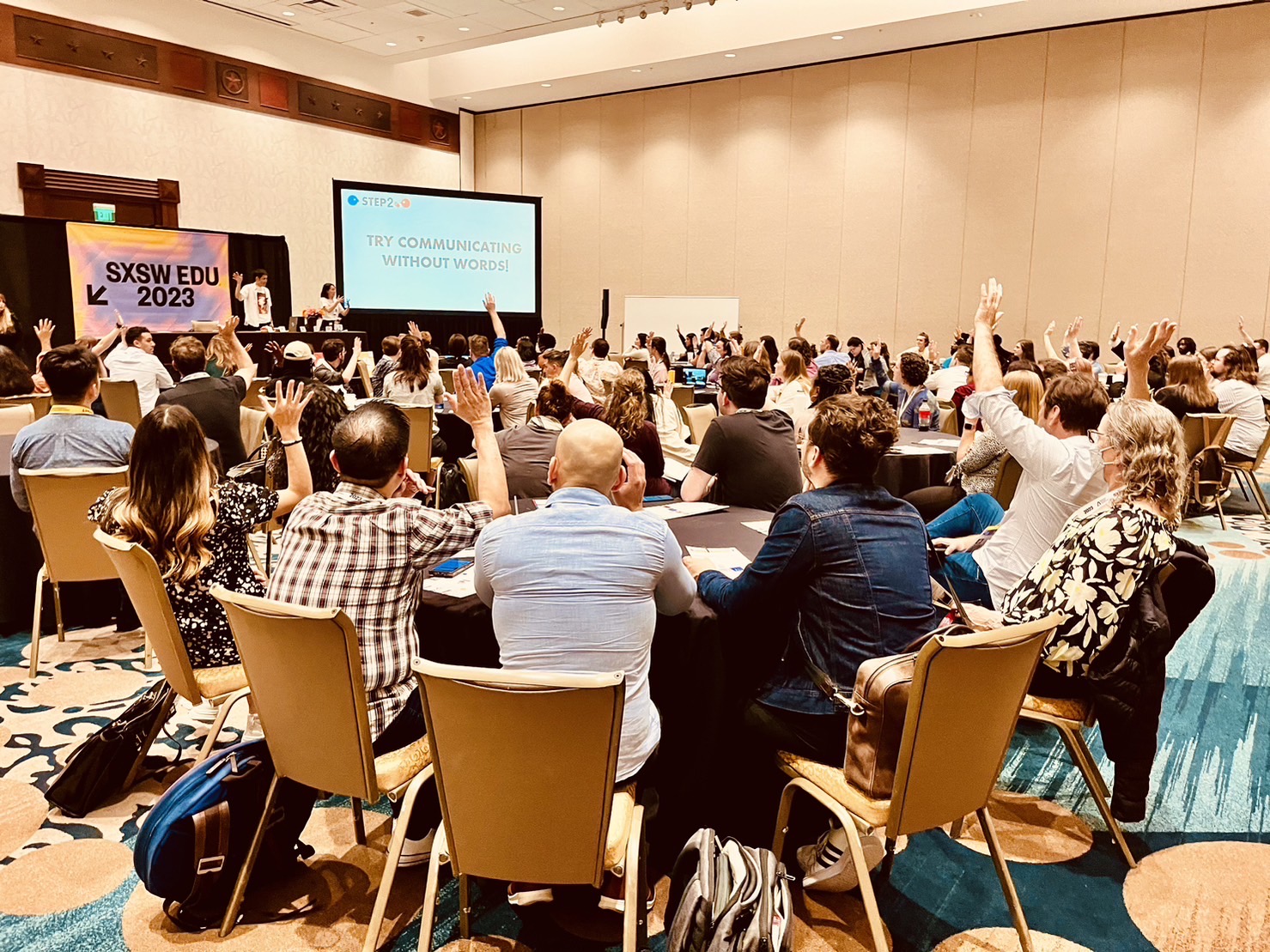
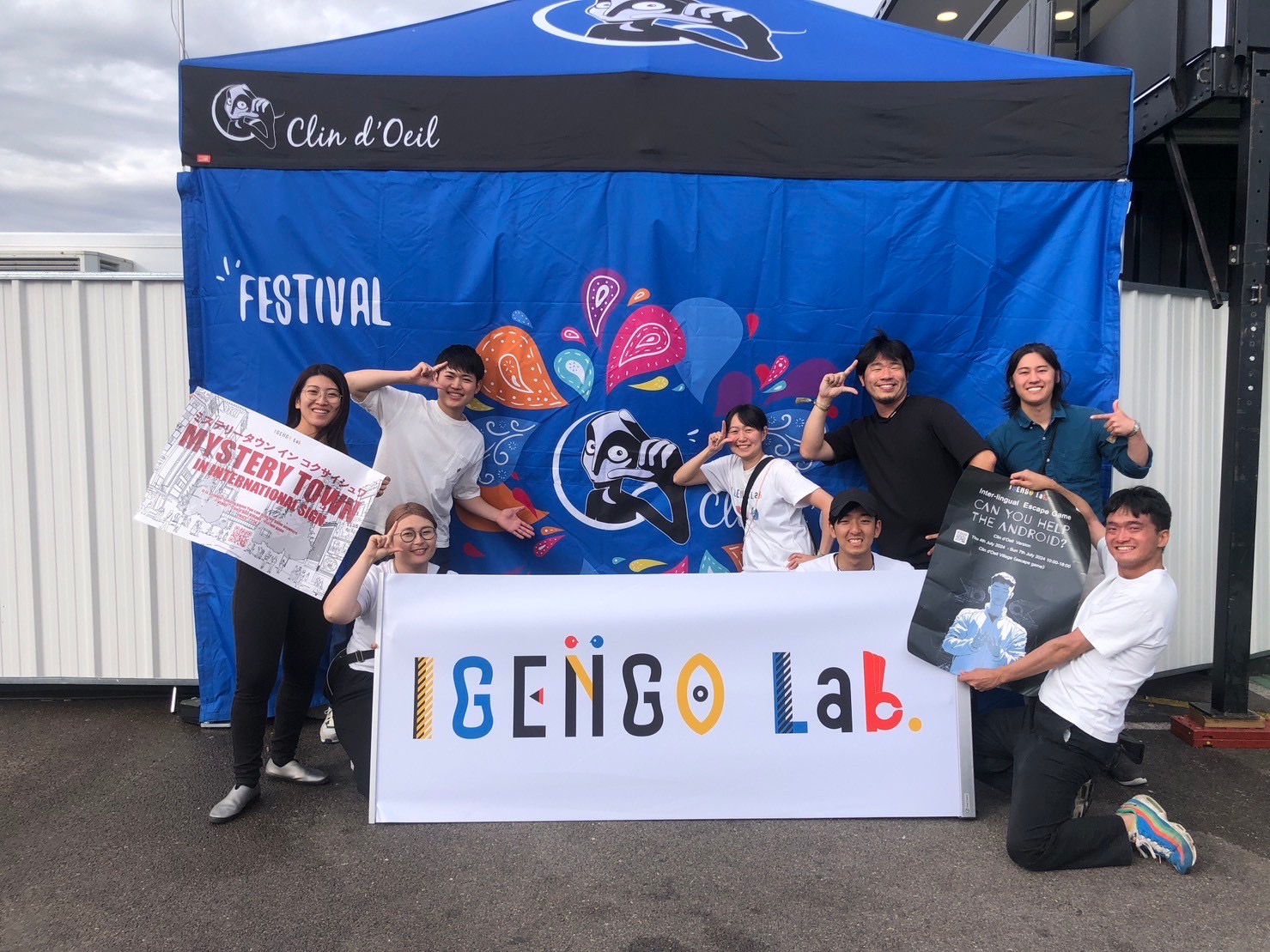
―Tokyo 2025 Deaflympics will be held in Tokyo in 2025. What do you look forward to the Tokyo 2025 Deaflympics?
Kikunaga There will be various countries participating at the Deaflympics, so we will be able to see many international sign language. I hope that people will take this opportunity to learn more about our community, our culture, and our society… You can actually interact with the community, create proper connections by deepening your relationships with each other, and find fun in differences. I wish for that kind of opportunity.
―Deaf athletics athlete Maki Yamada, who is expected to perform well in the Deaflympics appears in the brand story of IGENGO Lab. What kind of relationship do you have with him?
Kikunaga Actually I have known Maki Yamada since elementary school. When I was working at a welfare facility for children with disabilities, I volunteered at a school for the deaf, and that’s when I met Maki Yamada. I have also met IGENGO Lab. attend cast leader Yasuto Okumura and sign language entertainer Eri Nasu during elementary and junior high school. When they were both university students and working adults, I asked Yasuto Okumura if he would like to work with me. That’s when he brought Maki Yamada and Eri Nasu. They have an amazing ability to draw out conversations from customers. When I see my customers having fun and smiling heartily, I really respect that I can do this much.
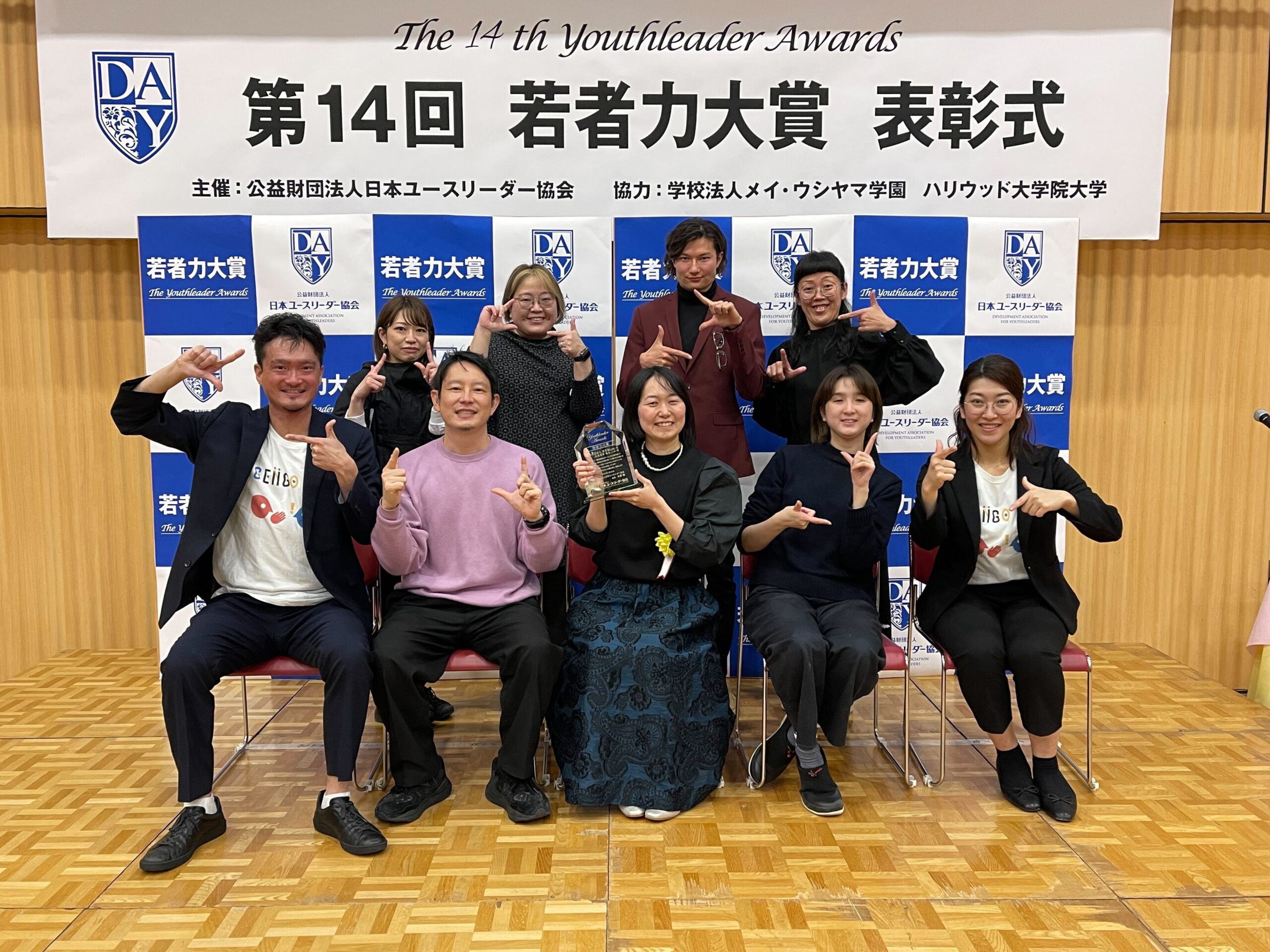
―What is your relationship with Deaf Athletics Pole Vault So Sato?
Kikunaga Yasuto Okumura also brought So Sato. Due to the coronavirus pandemic, all face-to-face events were canceled, so we switched to online events. So when we were gathering the members, Yasuto Okumura brought So Sato along. Due to the coronavirus pandemic, we didn’t meet face-to-face even once, but practiced and performed online. Even at online events, he really livened up the atmosphere with his unique character… He is one of the people who worked very hard.
―Finally, please give us a message for our readers.
Kikunaga When I think about the significance of the Deaflympics, this sounds a bit cold, but I thought there was an idea that it would be good to aim for the Olympics. Then why do we have the Deaflympics? This is because it is a very important place to affirm your hearing loss. I’m sure the Deaflympics is an opportunity for people to push themselves, to express their way of life, and to walk on their own path.
And what the 2025 Deaflympics will bring about is that whether there are Deaflympics or not, I wish I could have an environment where people can push themselves and expand options to go on the path they want towards the future of what the people with disabilities want and want to become when moving forward on their own path. I have also received a lot of support from many people. Without that support, there will be no IGENGO Lab. or myself. Now I want to be the person who can gently support someone. And I would like to create an environment where people are free to pursue their own path.
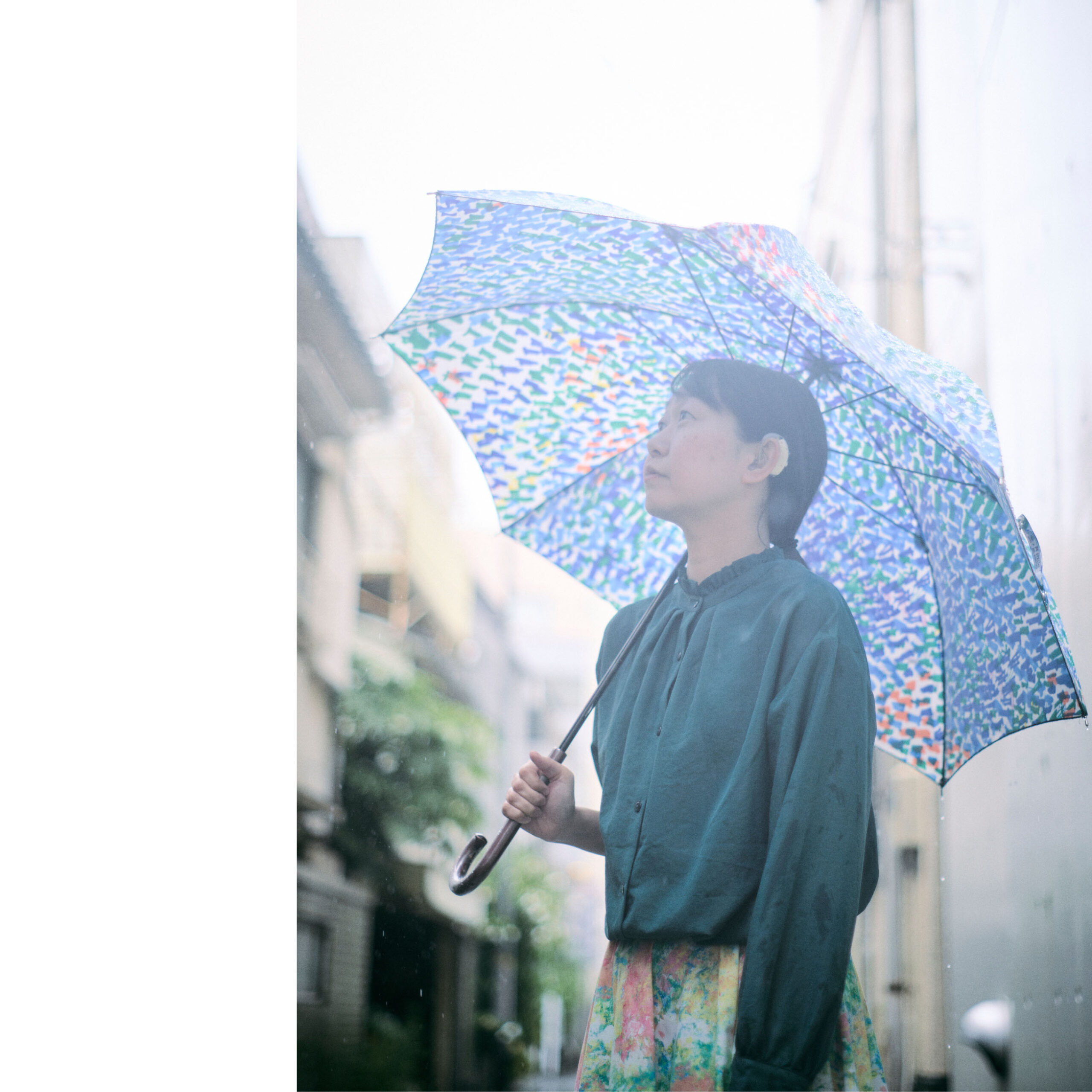
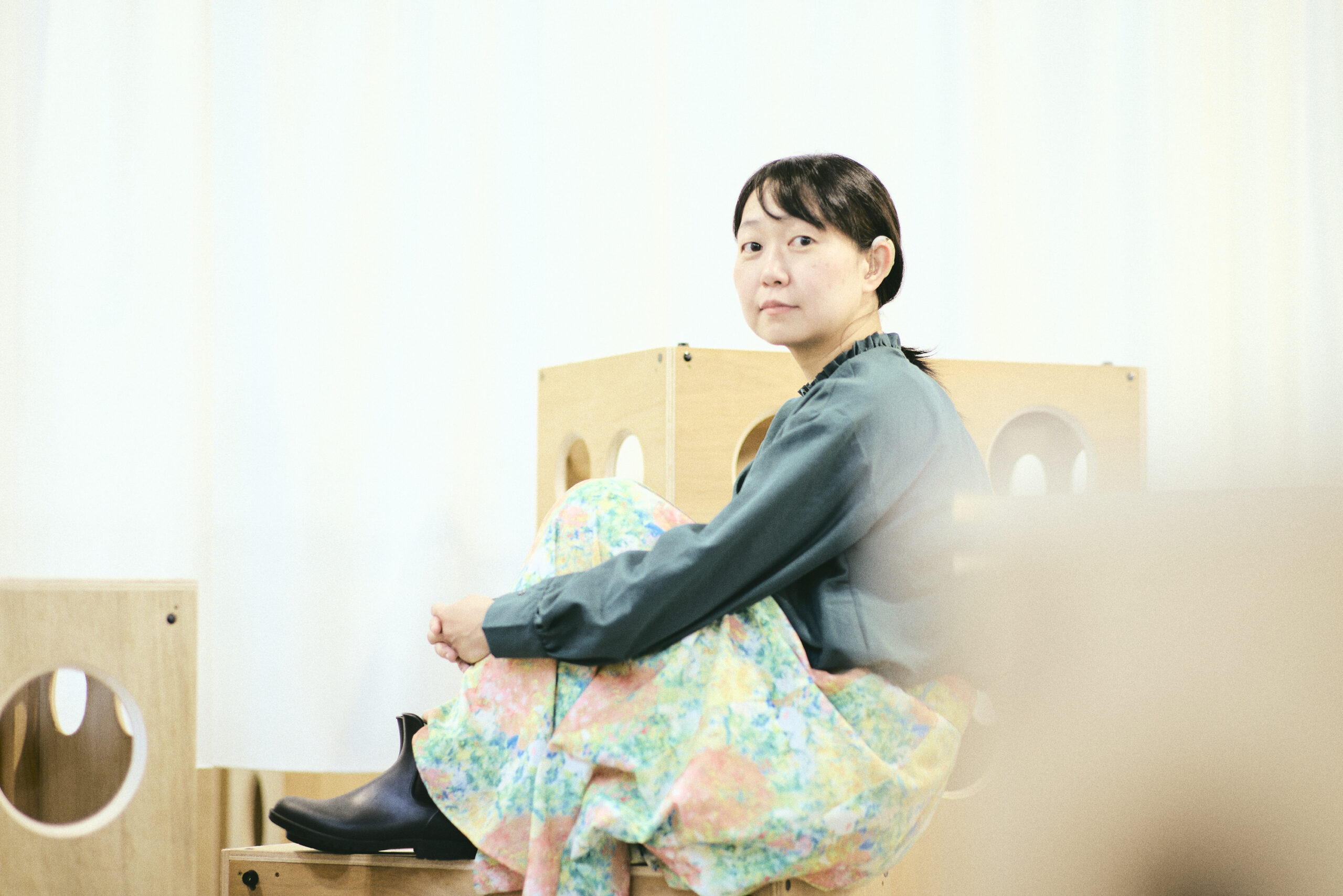
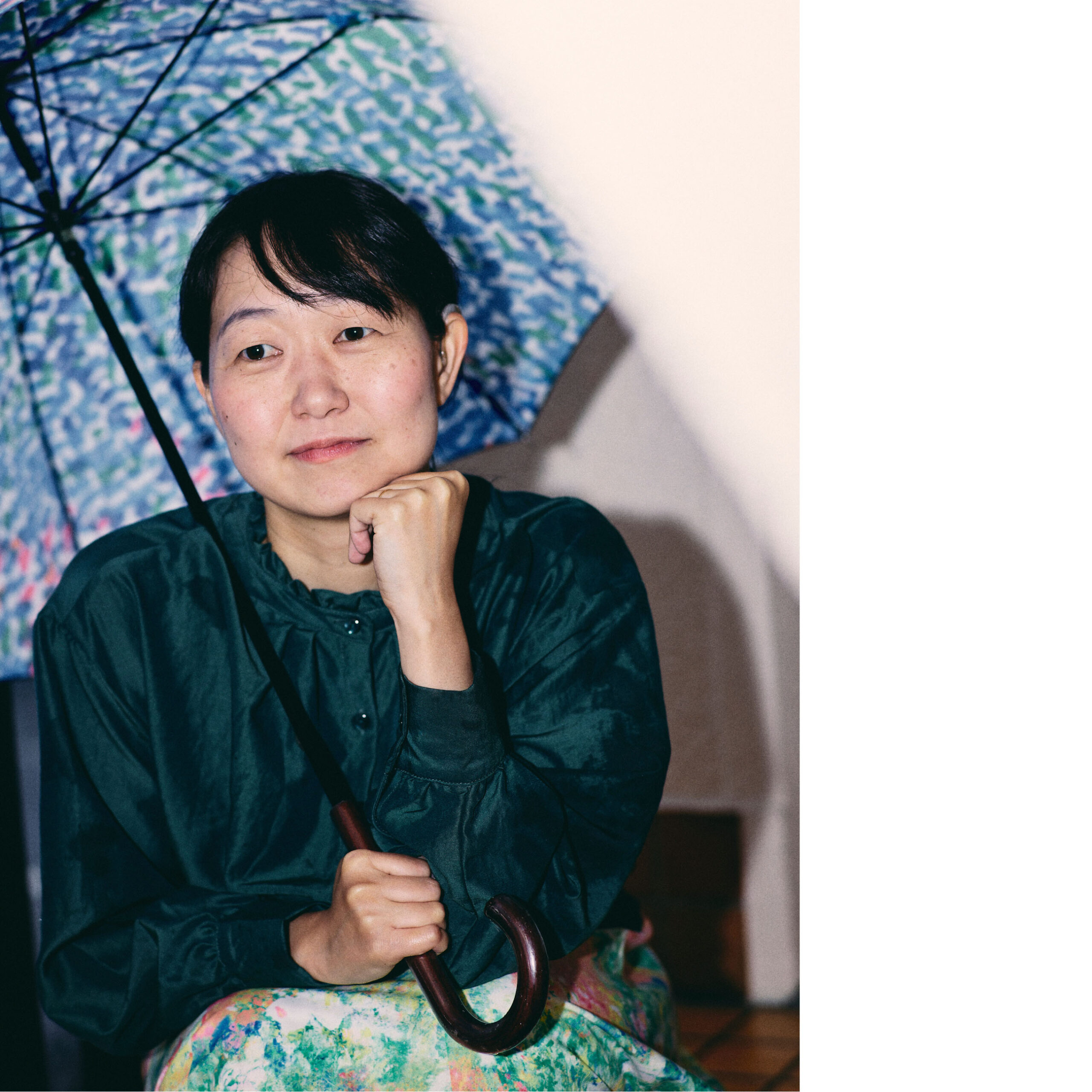

Fumi Kikunaga / Born in Tokyo
Representative of IGENGO Lab.
Born in 1985. Game developer of “Inter-lingual Escape Game”. Content creator.
HERALBONY Co., Ltd. Corporate Planning Office, Welfare Team.
In 2015, a “mystery solving game” was held as an exchange project between employees of a global financial institution and deaf children at a welfare-type facility for children with disabilities and the “Inter-lingual Escape Game” was held for the first time in the same year. Established IGENGO Lab. in 2018. Major works include “Ushinawareta Kokoro Sagashi (Searching for lost hearts)”, “5mm love story”, NHK “Different Language Escape Game ONTV”, Sapporo Art Park Open-Air Museum “Fantasy museum series” etc. Grand prize winner of the 14th Youthleader Awards.
Based on the experience at IGENGO Lab., joined HERALBONY Co., Ltd. with a desire to further change the image of disability. Mainly responsible for content development and promotion of employment of people with disabilities.
Web:https://www.igengo.com/
X:@igengo_lab
Instagram:igengo.lab
text by Rieko Kimura
photographs by Uta Mukuo
2025.10.09

目次Until I accept my “Deaf self”A new scenery opened up by challengesBehind the 1 million You Tube […]
2025.10.09
目次Until I accept my “Deaf self”A new scenery opened up by challengesBehind the 1 million You Tube […]
2025.08.06

目次I was told that “I didn’t want to be born into a house like this”Hokkaido→ Yokohama→ Nagoya→ Yokohama […]
2025.08.06
目次I was told that “I didn’t want to be born into a house like this”Hokkaido→ Yokohama→ Nagoya→ Yokohama […]